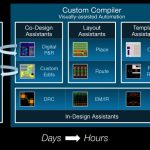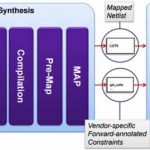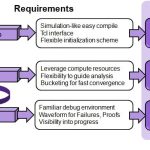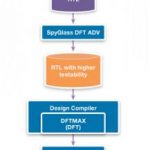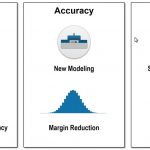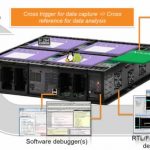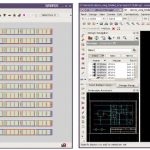Last week at the #53DAC conference there was a lot of excitement in the air about custom IC design, especially at the luncheon that I attended on Tuesday from Synopsys where they had customers like STMicroelectronics, GSI Technology, Samsung Foundry and the Synopsys IP group talk about their experiences using the new Custom Compiler… Read More
Tag: synopsys
Webinar alert – another break in the memory wall
A couple months ago we heard from another vendor in a webinar on HBM and breaking through the “memory wall”. Next week Open Silicon weighs in on the topic in a webinar with partners SK Hynix and Synopsys.… Read More
ARM sets up quagmire-free ecosystem for IoT
Wandering around DAC this week, I found much of the discussion focused on the EDA community being at an inflection point. How do we get more design starts from new places with new ideas without jeopardizing existing business? It’s not as simple a transition as it sounds.… Read More
Quick Guide to FD-SOI at #53DAC
If you’re headed to #53DAC (June 5-9 in Austin,TX) and are interested in learning more about FD-SOI, there will be lots of opportunities. Here’s a quick guide to get you started. … Read More
One FPGA synthesis flow for different IP types
Both Altera and Xilinx are innovative companies with robust ecosystems, right? It would be a terrible shame if you located the perfect FPGA IP block for a design, but couldn’t use it because it was in the “wrong” format for your preferred FPGA. What if there were a way around that?
There is a compelling argument to use each FPGA vendor’s… Read More
Bringing Formal Verification into Mainstream
Formal verification can provide a large productivity gain in discovering, analyzing, and debugging complex problems buried deep in a design, which may be suspected but not clearly visible or identifiable by other verification methods. However, use of formal verification methods hasn’t been common due to its perceived complexity… Read More
SpyGlass DFT ADV accelerates test closure – Xilinx and Synopsys webinar
Fed up with ECOing your way out of test problems? You might want to register for this webinar.When you’re building monster SoC FPGAs, you have all the same problems you have with any other SoC. That includes getting to very high test coverage as quickly as you can with a design targeted to the most advanced processes. We’re not just … Read More
Static Timing Analysis Keeps Pace with FinFET
At SemiWiki we’ve been blogging for several years now on the semiconductor design challenges of FinFET technology and how it requires new software approaches to help chip designers answer fundamental questions about timing, power, area and design closure. When you mention the phrase Static Timing Analysis (STA) probably… Read More
Debugging is the whole point of prototyping
The prototype is obviously the end goal of FPGA-based prototyping, however success of the journey relies on how quickly defects can be found and rectified. Winning in the debug phase involves a combination of methodology, capability, and planning. Synopsys recently aired a webinar on their HAPS environment and its debug ecosystem.… Read More
Custom Layout Productivity Gets a Boost
In the 1970’s, when Moore’s Law was still in its infancy, Bill Lattin from Intel published a landmark paper [1]. In it he identified the need for new design tools and methods to improve layout productivity, which he defined as the drawn and verified number of transistors per day per layout designer. He said existing … Read More


